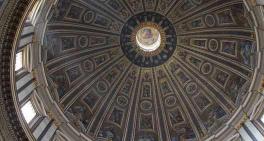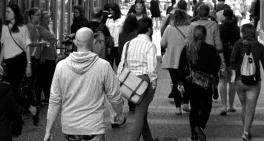Supreme Court rejects challenge to limits on church services
Criminal Law
A divided Supreme Court on Friday rejected an emergency appeal by a California church that challenged state limits on attendance at worship services that have been imposed to contain the spread of the coronavirus.
Over the dissent of the four more conservative justices, Chief Justice John Roberts joined the court's four liberals in turning away a request from the South Bay United Pentecostal Church in Chula Vista, California, in the San Diego area.
The church argued that limits on how many people can attend their services violate constitutional guarantees of religious freedom and had been seeking an order in time for services on Sunday. The church said it has crowds of 200 to 300 people for its services.
Roberts wrote in brief opinion that the restriction allowing churches to reopen at 25% of their capacity, with no more than 100 worshipers at a time, “appear consistent" with the First Amendment. Roberts said similar or more severe limits apply to concerts, movies and sporting events “where large groups of people gather in close proximity for extended periods of time.”
Justice Brett Kavanaugh wrote in dissent that the restriction “discriminates against places of worship and in favor of comparable secular businesses. Such discrimination violates the First Amendment.” Kavanaugh pointed to supermarkets, restaurants, hair salons, cannabis dispensaries and other businesses that are not subject to the same restrictions. Lower courts in California had previously turned down the churches' requests.
The court also rejected an appeal from two churches in the Chicago area that objected to Gov. Jay Pritzker’s limit of 10 worshipers at religious services. Before the court acted, Pritzker modified the restrictions to allow for up to 100 people at a time. There were no recorded dissents.
Related listings
-
Indiana attorney general argues suspension doesn't oust him
Criminal Law 05/16/2020Lawyers for Indiana’s attorney general are arguing he has the legal right to remain in office even while serving a 30-day suspension of his law license for groping four women. The arguments filed Friday with the state Supreme Court come after R...
-
Black robes or bathrobes? Virus alters high court traditions
Criminal Law 05/01/2020The coronavirus pandemic is forcing big changes at the tradition-bound Supreme Court. The justices will hear arguments this month by telephone for the first time since Alexander Graham Bell patented his invention in 1876.Audio of the arguments will b...
-
Texas clinics ask Supreme Court to abortions during pandemic
Criminal Law 04/12/2020Abortion clinics in Texas on Saturday asked the Supreme Court to step in to allow certain abortions to continue during the coronavirus pandemic.The clinics filed an emergency motion asking the justices to overturn a lower-court order and allow aborti...

USCIS to Begin Accepting Applications under the International Entrepreneur Rule
U.S. Citizenship and Immigration Services (USCIS) announced today it is taking steps to implement the International Entrepreneur Rule (IER), in accordance with a recent court decision.
Although the IER was published during the previous administration with an effective date of July 17, 2017, it did not take effect because the Department of Homeland Security (DHS) issued a final rule on July 11, 2017, delaying the IER’s effective date until March 14, 2018. This delay rule was meant to give USCIS time to review the IER and, if necessary, to issue a rule proposing to remove the IER program regulations.
However, a Dec. 1, 2017, ruling from the U.S. District Court for the District of Columbia in National Venture Capital Association v. Duke vacated USCIS’ final rule to delay the effective date. The Dec. 1, 2017, court decision is a result of litigation filed in district court on Sept. 19, 2017, which challenged the delay rule.




